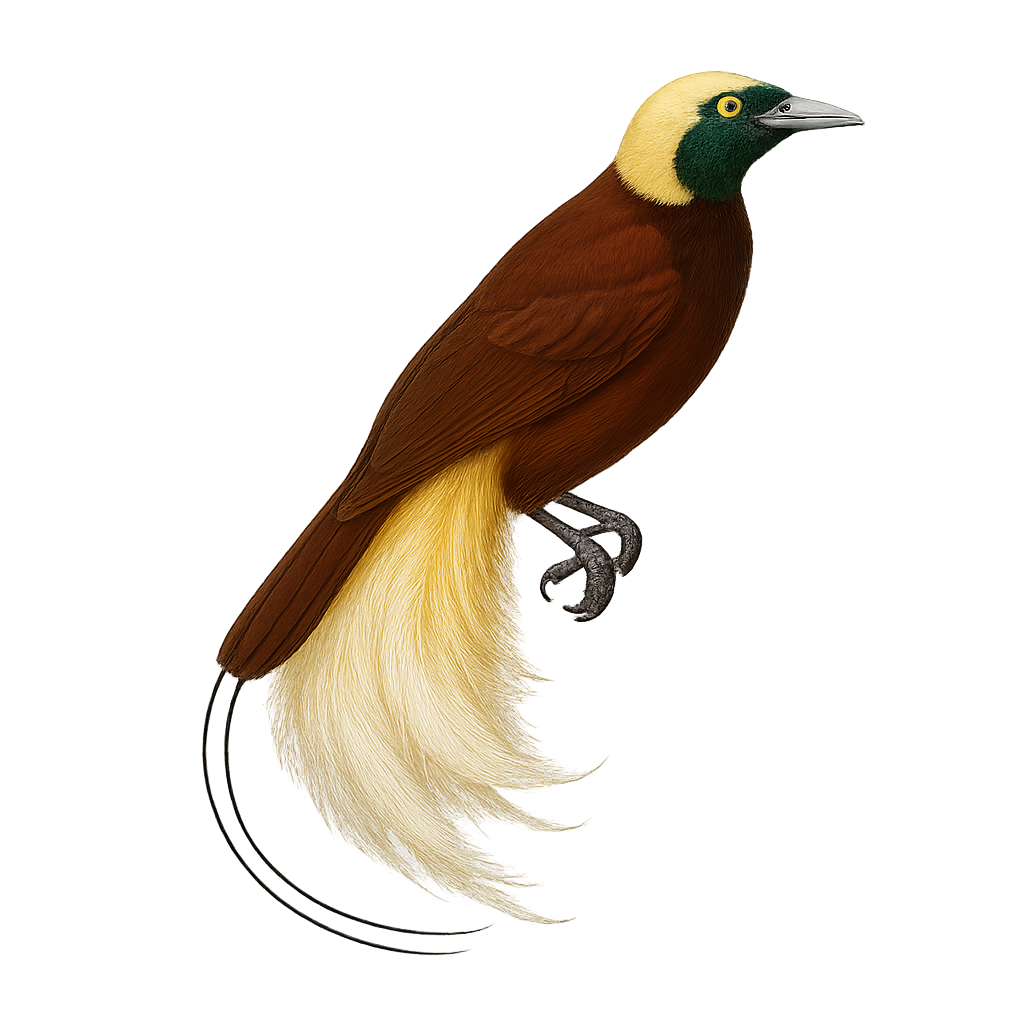Your wildlife photography guide.
Explore the greater bird-of-paradise in detail, study its behavior, prepare your shots.
Where to observe and photograph the greater bird-of-paradise in the wild
Learn where and when to spot the greater bird-of-paradise in the wild, how to identify the species based on distinctive features, and what natural environments it inhabits. The WildlifePhotographer app offers tailored photography tips that reflect the greater bird-of-paradise’s behavior, helping you capture better wildlife images. Explore the full species profile for key information including description, habitat, active periods, and approach techniques.
Greater Bird-of-paradise
Scientific name: Paradisaea apoda

IUCN Status: Least Concern
Family: PARADISAEIDAE
Group: Birds
Sensitivity to human approach: Suspicious
Minimum approach distance: 10 m
Courtship display: June to August
Incubation: 17-19 jours
Hatchings: June to September
Habitat:
Tropical forests, canopies, wetlands
Activity period :
Primarily active during the day, with peak activity in the morning and late afternoon.
Identification and description:
The Greater Bird-of-paradise, or Paradisaea apoda, is an iconic bird of the tropical forests of New Guinea. Known for its spectacular plumage, the male displays yellow and brown feathers with green and blue hues on the head. These birds are famous for their complex courtship displays, where males showcase their feathers to attract females. They primarily inhabit the forest canopy, feeding on fruits and insects. Their melodious song and social behavior make them fascinating creatures to observe. Although their habitat is threatened by deforestation, they remain relatively common in some areas.
Recommended lens:
400 mm – adjust based on distance, desired framing (portrait or habitat), and approach conditions.
Photography tips:
To photograph the Greater Bird-of-paradise, it is advisable to use a telephoto lens of at least 400mm to capture the details of its plumage without disturbing it. Look for areas of the forest where males perform their courtship displays, often early in the morning. Be patient and discreet to avoid disrupting their natural behavior. Use a tripod to stabilize your camera and adjust your settings for low-light conditions under the canopy.
From knowledge to field practice
A species profile helps you understand an animal. In the field, the challenge is often different. Remembering your own observations.
The WildlifePhotographer app allows you to:
• record your personal observations
• note locations, dates, and behaviors
• revisit your field references over time
• build a private and long-term field logbook
The app does not provide observation locations.
It helps you organize what you actually observe, with respect for wildlife.

